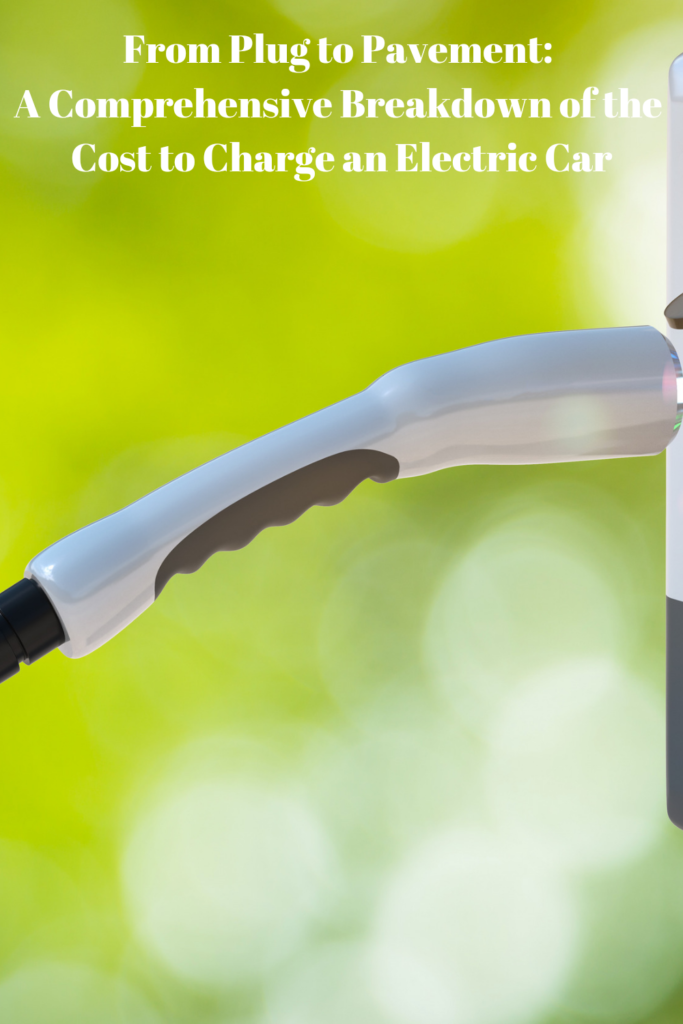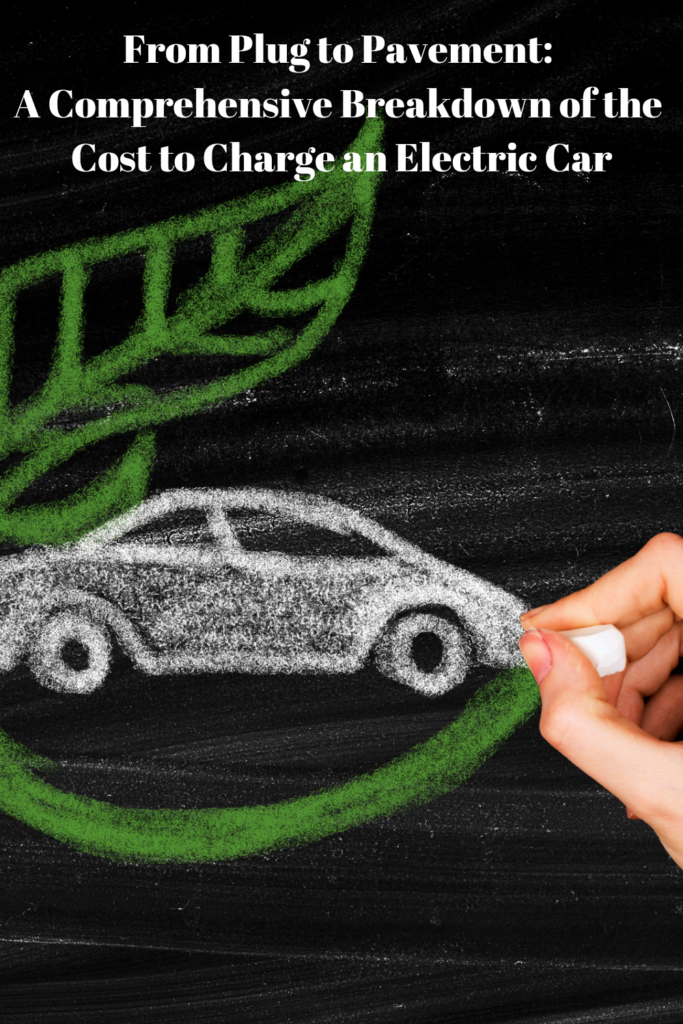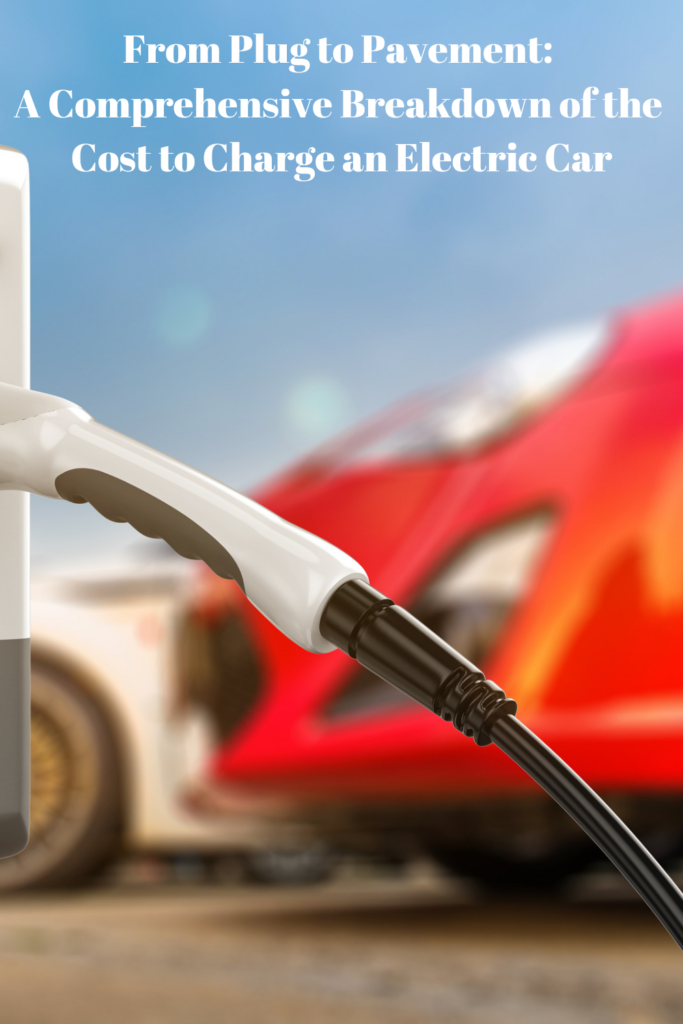A Comprehensive Breakdown of the Cost to Charge an Electric Car
Introduction:
Electric vehicles (EVs) have gained immense popularity due to their environmental benefits and potential for long-term cost savings.
However, understanding the cost to charge an electric car can be complex, as it is influenced by various factors, including electricity rates, charging station options, car models’ efficiency, and battery capacities.

In this blog post, we will delve into each of these factors to provide a detailed breakdown of the cost to charge an electric car.
- Electricity Rates and Regional Variation:
The cost of electricity per kilowatt-hour (kWh) varies significantly depending on your geographical location. Researching the average electricity prices in your region is crucial to estimate the cost to charge your electric car accurately. For instance, the electricity price per kWh in the United States can range from $0.08 to $0.24, while in Europe, it can vary between €0.10 and €0.30. - Charging Station Rates and Options:
Various charging station options are available, each with different charging rates and associated costs. These stations include home charging stations, public charging networks, and fast-charging stations. Let’s explore each of these options:
- Home Charging Stations: Installing a Level 2 home charging station is an ideal choice for regular charging convenience. These stations are faster than standard outlets and typically cost between $400 to $1,200, including installation fees. However, electricity costs per kWh remain the same as discussed earlier.
- Public Charging Networks: Public charging networks offer flexibility while traveling, but these charging stations often have higher per kWh rates than home stations. The pricing structure may differ, ranging from flat fees per session to both session fees and per kWh rates. The average cost per kWh can range from $0.10 to $0.45, depending on the service provider.
- Fast-Charging Stations: Fast-charging stations provide a quick charge for EVs, but they tend to be more expensive compared to other options. Per kWh prices can range from $0.20 to $0.75, with additional session fees that vary based on the service provider.
- Efficiency and Battery Capacity of Electric Car Models:
Different electric car models have varying levels of energy efficiency and battery capacities. More efficient models will require less energy to cover the same distance, resulting in lower charging costs. Researching and comparing the energy efficiency ratings (miles per kWh) of various models is crucial for estimating charging expenses accurately. - Charging Time and Overall Energy Consumption:
Charging time for an electric car is influenced by both the vehicle’s battery capacity and the charging station’s power output, measured in kilowatts (kW). For example, a car with a 60 kWh battery capacity will take approximately 5 hours to charge on a 12 kW Level 2 charging station (considering an average charging efficiency of 85%). - Real-World Examples:
To provide practical insights, let’s consider two real-world examples:
- Example 1: Sarah owns a Tesla Model 3 with a 54 kWh battery capacity. She uses a home charging station with an electricity rate of $0.12 per kWh. Assuming an energy efficiency of 4 miles per kWh, Sarah’s cost per mile would be $0.03 ($0.12/kWh divided by 4 miles per kWh).
- Example 2: John frequently utilizes a public charging network at $0.25 per kWh for his Chevrolet Bolt, which has a 66 kWh battery capacity. With an energy efficiency of 3.5 miles per kWh, John’s cost per mile amounts to $0.072 ($0.25/kWh divided by 3.5 miles per kWh).
- Addressing Misconceptions and Emphasizing Benefits:
It is essential to address common misconceptions surrounding the cost of charging an electric car. Although initial purchase costs can be higher compared to traditional vehicles, electric cars offer long-term cost savings due to lower fuel and maintenance expenses. Additionally, they contribute to reduced carbon emissions, promoting a cleaner and more sustainable environment.
Conclusion

When considering the cost to charge an electric car, it is crucial to consider factors such as electricity rates, charging station options, car models’ efficiency, battery capacities, and charging times.

By researching these components, drivers can estimate charging expenses more accurately. Switching to electric vehicles not only results in long-term cost savings but also contributes to a healthier planet. So, hop on board the electric revolution today!
